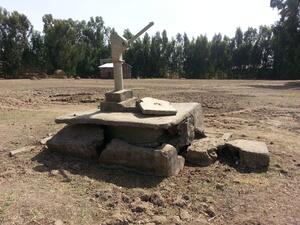Ethiopia
In rural Ethiopia, irrigated agriculture has complex linkages to drinking water supply and sanitation services. Separate sources for drinking water supply and agricultural uses do not exist in many areas. Due to limited availability of safe drinking water, the majority of the rural population relies on unimproved water sources, including rivers, irrigation water from canals and dams, ponds, streams, and unprotected springs which are easily polluted by human and animal feces. Irrigation water might serve as an option to increase the availability of water for domestic uses and to save time and energy on water collection. Drinking water quality and quantity can easily be affected by agricultural practices and poor quality of irrigation water for domestic purposes may be harmful for health due to the presence of disease-causing pathogens. However, this linkage is often overlooked and understudied.
>Considering the limited studies on the linkage between domestic water and agriculture, this study shed some light on the agriculture-water-health nexus using state-of-the art econometric methods. For this study, a household survey has been conducted in rural areas of Fogera and Mecha districts of Ethiopia from February to June 2014. More than 454 agricultural households were randomly selected using a stratified multi-stage cluster sampling technique. Drinking water sample quality testing has been conducted and anthropometric measurements such as height and weight were also collected for children under-five years of age.
Partners: Ethiopian Economic Association (EEA), Ethiopia
Contact person: Muhammed Abdella Usman




